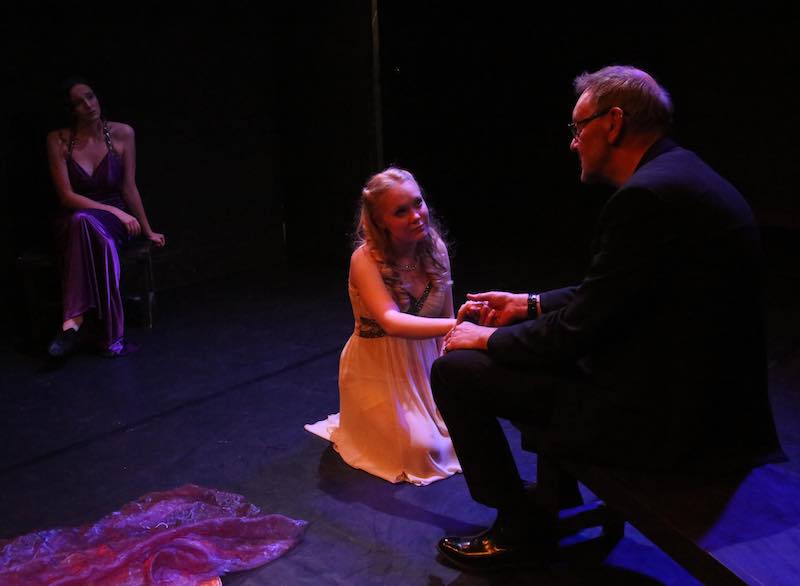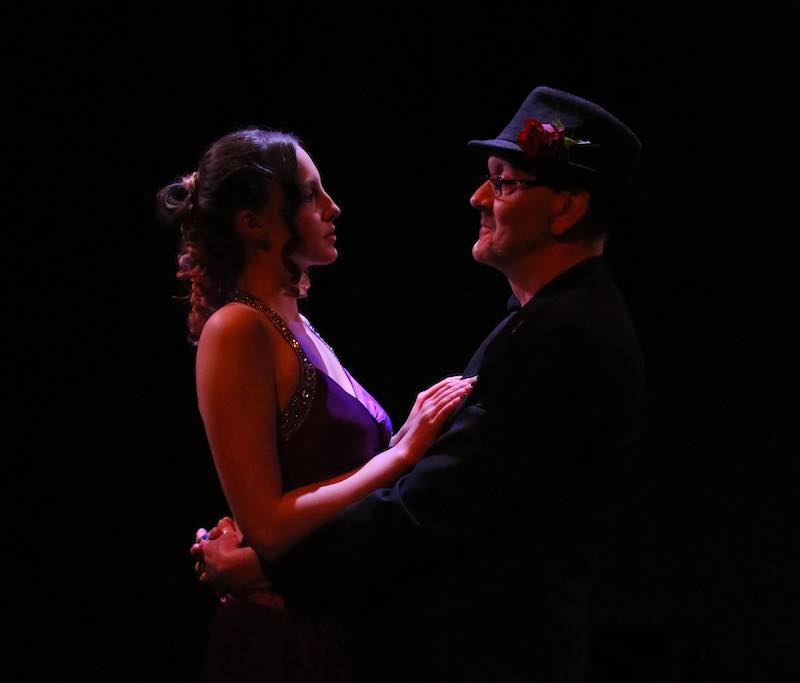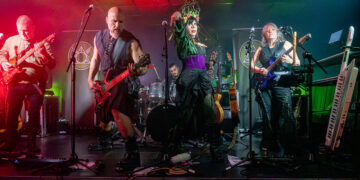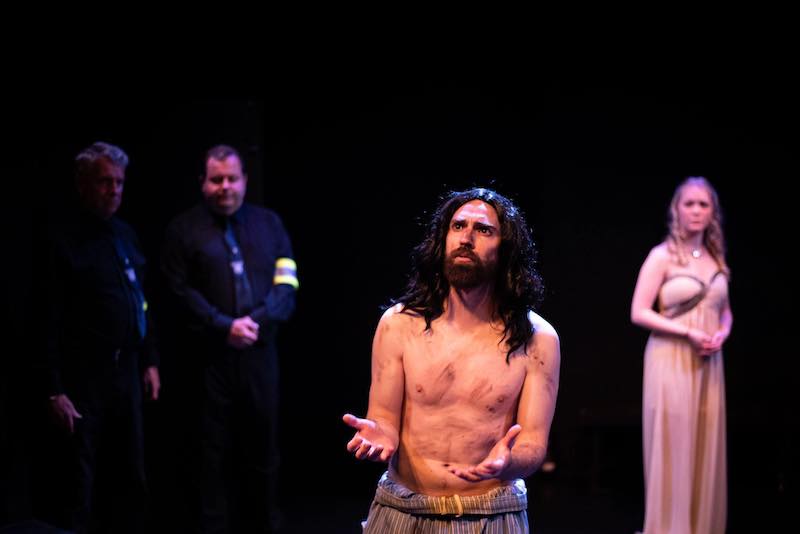Does Oscar Wilde’s play – once banned for almost 40 years – still have the power to shock?
“Salome”, written in 1892 but banned in the UK until 1931, tells the Biblical story of John the Baptist (Iokanann in this version of the story)’s imprisonment by Herod Antipas, the King of Galilee and Perea during Jesus’s last days.
The outspoken prophet has incurred the ruler’s ire for criticising his marriage to Herodias, who was formerly married to Herod’s half-brother; and who has brought Salome (her daughter from that marriage) into Herod’s court.
Yet as the flames of their marriage cool, Herod’s eyes turn to Salome…who in turn is intrigued by the fiery prophet, and somewhat aggrieved when he rebuffs her amorous advances (let’s be fair; “daughter of Sodom” aren’t the words you want to hear when you’ve just asked someone if you can kiss them).
With Herod begging Salome to dance for him, and offering her “anything she wants” as a reward, what will she ask for…?

Interestingly for a play that hinges almost entirely on an older man’s sexual fixation with a teenager, the play incurred Victorian Britain’s rage solely for depicting a Biblical figure on the stage.
But with the passage of time and the subsequent arrival of Martin Scorsese’s film “The Last Temptation of Christ” (which posited a scenario where Jesus renounced his mission in favour of settling down with a wife and kids), the play no longer feels sacrilegious.
Indeed, Iokanaan’s presence sets the play’s moral compass; he feels like the only decent person here, and the fact that he’s stuffed into an off-stage cistern for most of the 1hr 20 run time is a nice visual metaphor for what’s become of the court’s ethics. Luke Burton’s portrayal of the prophet is a powerful one, brimming with passion and with the fire of belief burning in his eyes.
His character is the opposite of Mikhail Franklin’s Herod, on stage for the majority of the play and holding the bulk of the lines. Sustaining your energy and the audience’s attention for this length of time is no easy task; when your character is also a lecherous older man, dismissive of his wife and lusting after her young daughter, it’s a borderline impossible one. Yet Franklin does a grand job, smartly playing the Tetrarch as an ailing man consumed by paranoia and madness, and thereby presenting us with the moral quandary of hearing risible things from someone who, if we couldn’t hear what they were saying, we’d probably want to lend a hand to.

Amy Cunnington’s Herodias has the difficult task of playing a character for whom it’s difficult to sympathise – why does she stay with this man, when she quite clearly recognises his intentions towards her daughter? She strikes a good balance between alarm and apathy; we get the sense that she’s spent so many years fruitlessly trying to talk sense into her husband that she’s now saying the lines with no real hope that they’ll be heard.
The actors and actresses making up the rest of Herod’s court take a similar tack, expressing concern at what they’re seeing but with a quiet, awkward tentativeness which suggests a fear of being overheard and punished by their ruler. It may not have been Wilde’s intention, but played this this way, it perhaps parallels the ways in which abuses of power are allowed to continue in this day and age.
Salome herself is played well by Amelia Laithwaite, adroitly balancing discomfort at Herod’s advances with a cruel and possessive attitude towards Iokanaan; delivered with this nuance, we might not sympathise with the way she treats him, but we can certainly understand what made her this way.
Director Phil Tomlin has taken a modern approach to staging Wilde’s play; like Steven Berkoff’s celebrated 1988 production, he eschews the costumes and set dressings of the era in favour of a bare stage and minimal lighting, with the cast wearing suits and evening wear.

It’s a bold choice that initially seemed counter-productive to me – on the surface, this script is begging for an opulent production – but it casts the story in a more relatable visual frame, and throws the emphasis instead onto the script, where I’m sure Wilde himself would’ve wanted it to be.
For this isn’t really a searing religious play – at its heart, it’s the Gospels by way of a drawing room play, complete with Wildean witticisms (“I’ve seen too many miracles to believe them”) and heavily poetic dialogue. The opulence is in the language, you see, and it’s really here that your enjoyment of the play will live or die. The moon is compared to pretty much everything you can imagine in the play’s opening; there is a certain amount of repetition in the lines, and Herod’s description of his sapphires and pearls is vivid enough to make Keats blush. These are all features of the romantic-era poetry that would still have resonated with audiences at the time, and they work, but it’s worth being aware of if this isn’t your sort of thing.
But for open-minded people with an interest in the Gospels, and for fans of Oscar Wilde, this is a bold staging of a play that still gives one much to think about.
“Salome” runs at The Studio Theatre in South Hill Park between the 27th and 30th April; tickets are available at https://www.southhillpark.org.uk/whats-on/shows-events/. Photos are courtesy of Iona Newton and Phil Tomlin.












































